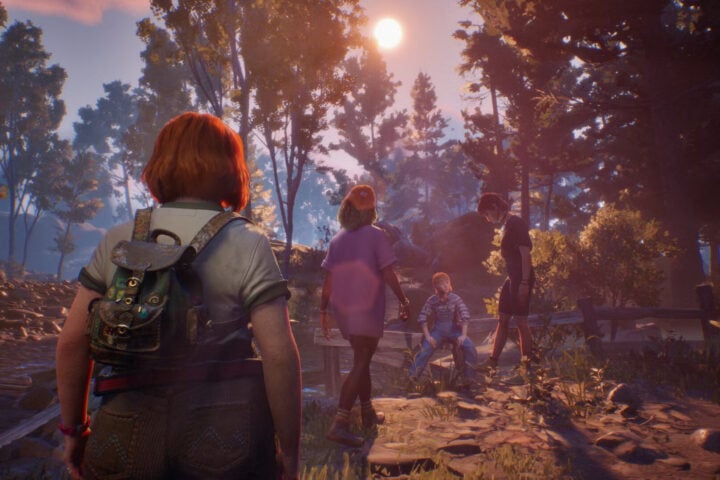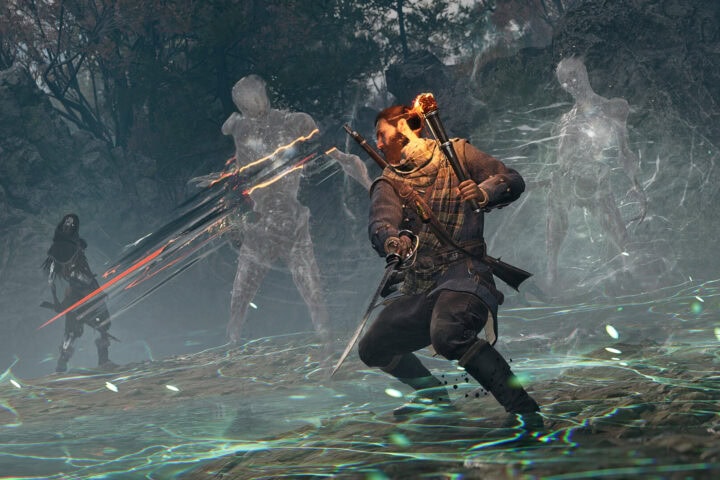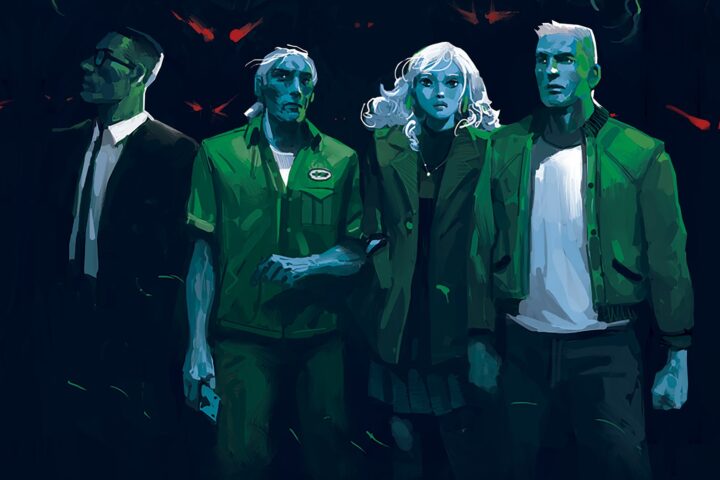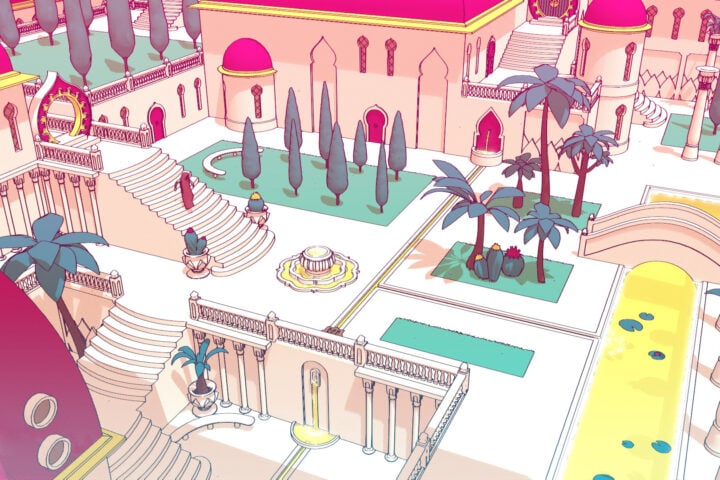If getting (mostly) on the other side of a pandemic has taught us anything, it’s that the looming specter of mass death really has a way of realigning your priorities. That mood hits especially different in the world of Montreal-based developer KO_OP’s Goodbye Volcano High, a game which posits that prehistoric life on Pangaea was a very modern, 21st-century kind of situation. Prehistoric high school in particular is a perennial genderqueer maze of entanglements, crushes, awkwardness, puberty, half-formed ambitions, and parental expectations that just so happen to be populated by anthropomorphic, animated dinosaurs.
In the middle of it all is Fang, a burgeoning musician who spent their summer vacation undergoing a full-blown mood change, from a very femme pop-punk to a moody, sardonic enby who keeps being deadnamed in the notes left on the fridge by their ever-absent parents. With their friends scattered to the four winds for the summer, Fang lived for months in their room, focused on getting their band, Worm Drama, up to the next level with a new sound that’s less Paramore and more Phoebe Bridgers. Unfortunately, when school starts back up, Fang finds their life’s trajectory diverging quite a bit from their bandmates, Trish and Reed.
That’s a nice bit of tension to hang an interactive slice-of-life visual novel on, and the opening hour or two of Goodbye Volcano High is pretty patient about introducing the kids of Volcano High—their quirks, their thoughts, their ambitions, and their shortcomings. The game’s dialogue feels organic, and some fun is had about the whole conceit of Gen-Z lizards having teenage angst. (It’s as if My So-Called Life had a crossover with Dinosaurs in the ’90s.) More than that, there’s a rhythm-game component where performing well with Worm Drama’s music in specific sequences changes the tone of the conversations that follow.
Aside from the dinosaur gimmick, though, it’s not like Goodbye Volcano High, up to this point, is a game we haven’t played before in dozens of forms of late. Even the music gimmick, as well done as it is, can’t help but conjure fond memories of 2022’s wonderful We Are OFK. That all changes about an hour or two into Goodbye Volcano High, when a news bulletin announces that an asteroid—yes, that asteroid—is set on a collision course with Pangaea. Not since the original Life Is Strange has one of these games flirted with the apocalypse, and even then, the tornado that demolishes Arcadia Bay has nothing on a full-on, extinction-level event.
Goodbye Volcano High manages to somehow balance its lighter, colorful approach to the drama at its center with the innate knowledge of how meaningless the characters’ problems are. Its second half, as a result, is an emotional joyride, a white-knuckle struggle to determine how Fang meets the end, and what all of a teenager’s petty problems actually meant in the process.
There’s not as much control over that as one might like. While the dialogue is good, the choices regularly given to the player during the course of that dialogue don’t really come to bear until the last chapter of the game. But the journey is still a unique, effortlessly charming one that proudly wears its heart on its sleeve. It treats its numerous marginalized characters with such love, warmth, and care, and the music they make even more so. In Goodbye Volcano High, the world end not with a bang or a whimper, but an eye roll and a middle finger.
This game was reviewed with code provided by Indie Angels.
Since 2001, we've brought you uncompromising, candid takes on the world of film, music, television, video games, theater, and more. Independently owned and operated publications like Slant have been hit hard in recent years, but we’re committed to keeping our content free and accessible—meaning no paywalls or fees.
If you like what we do, please consider subscribing to our Patreon or making a donation.





